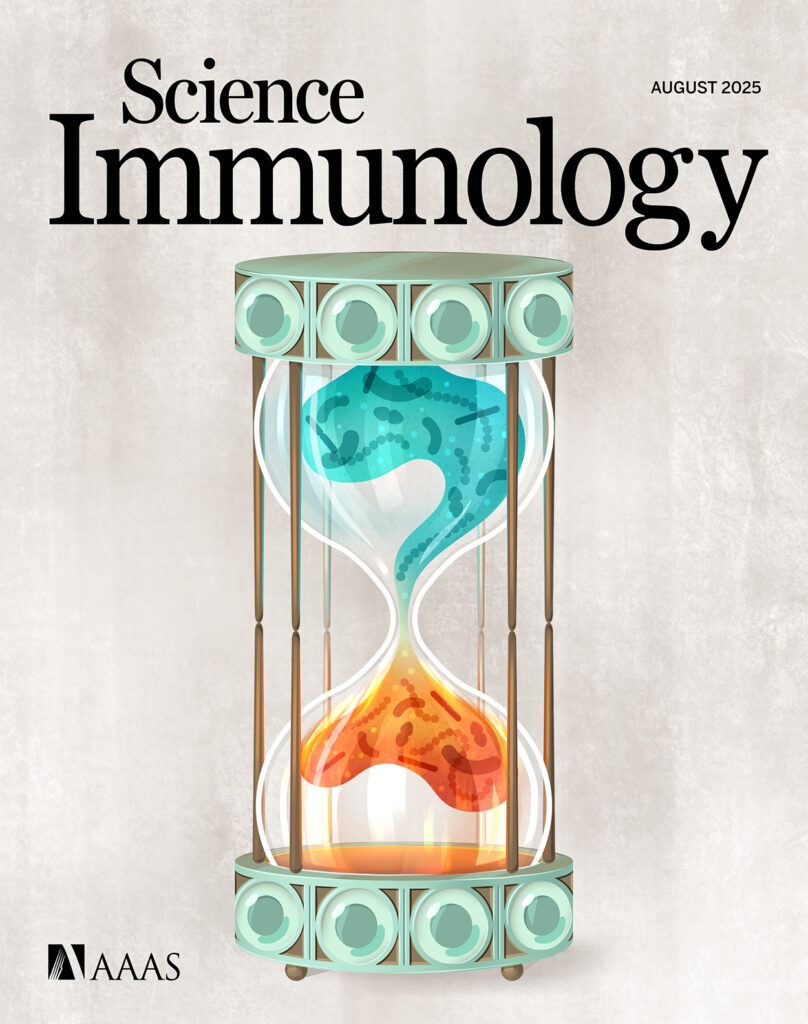Healthy aging relies on a symbiotic host-microbiota relationship. The age-associated decline of the immune system can pose a threat to this delicate equilibrium. In this work, we investigated how the functional deterioration of T cells can affect host-microbiota symbiosis and gut barrier integrity and the implications of this deterioration for inflammaging, senescence, and health decline. Using the Tfamfl/flCd4Cre mouse model, we found that T cell failure compromised gut immunity leading to a decrease in T follicular cells and regulatory T cells (Treg cells) and an accumulation of highly proinflammatory and cytotoxic T cells. These alterations were associated with intestinal barrier disruption and gut dysbiosis. Microbiota depletion or adoptive transfer of total CD4 T cells or a Treg cell–enriched pool prevented gut barrier dysfunction and mitigated premature inflammaging and senescence, ultimately enhancing the health span in this mouse model. Thus, a competent CD4 T cell compartment is critical to ensure healthier aging by promoting host-microbiota mutualism and gut barrier integrity.
